The music of Aaron Copland is so beautiful and so iconic. And the vibrant stories told through these songs are perfect for use in the elementary music classroom.
This blog post will give you some ideas of specific music by Aaron Copland to use in your classroom as well as ideas on how to present the music (and the composer) to your students.
Do you want to get started right away? Grab the Music of Aaron Copland Lesson Plan Bundle and get teaching today!
Who Is Aaron Copland
Aaron Copland was born in 1900, in the hustle and bustle of New York City. Copland grew up learning music from his sister, who studied at the Metropolitan Opera. He worked hard on piano and studying composition and eventually was admitted to the Paris Conservatory to work with the famous teacher, Nadia Boulanger.
At first, Copland wrote music that was very complicated and only appealed to an elite group of listeners. However, Copland began to move away from this idea. He led the path towards a more populist style of music that all Americans could access and enjoy. This shift in composing styles is first seen in El Salon Mexico and carried on through his most famous works, such as Rodeo, Appalachian Spring and Fanfare for the Common Man.
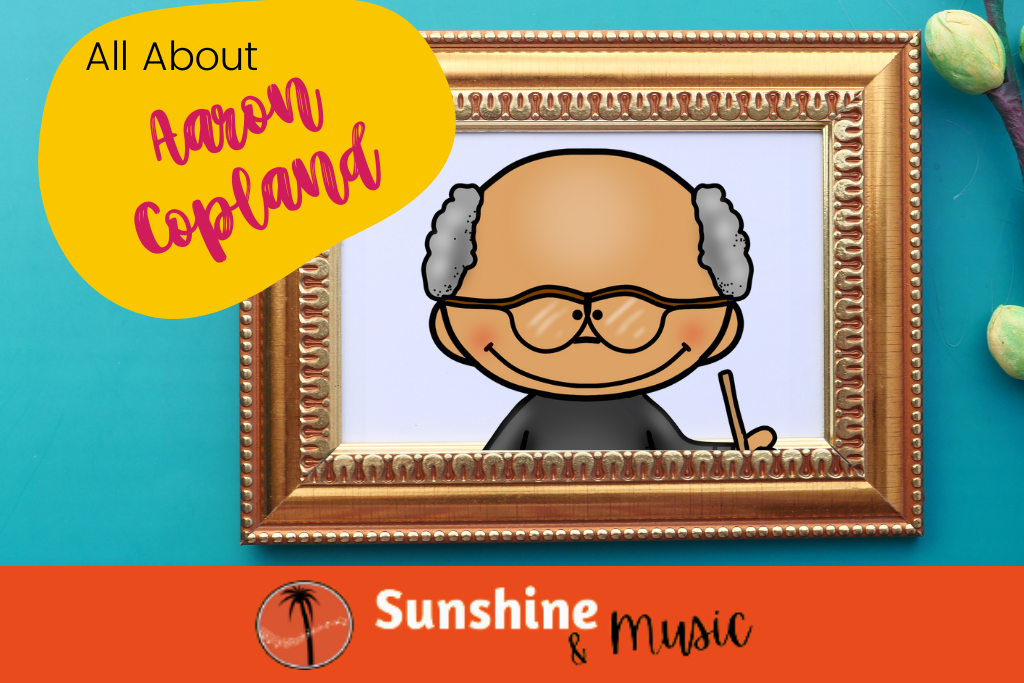
What Are Some Famous Aaron Copland Songs?
Aaron Copland has many famous songs, but three that stand out to me the most. Rodeo, Appalachian Springs and Fanfare for the Common Man. It is all great music, but sometimes we as teachers can be at a loss for how to create a fun lesson to go with the music.
The Music of Aaron Copland Bundle contains lessons and activities for three famous songs by Aaron Copland. Let me outline some of them for you here.
Aaron Copland Hoedown from Rodeo
I think Hoedown from Rodeo might be Copland’s most famous piece. And the foot stomping sound of this piece makes it an easy one to dance to.
My students love parachutes, so I decided to make this into a parachute activity. And with so many clear and repeating themes, this song is perfect for moving and earring the musical form.
I also created a rhythm play along that can be performed with body percussion, or transferred to drums or other percussion. This one is very popular as well in my classroom.
When you want to take the energy level down a notch, listening glyphs can be a great way to go. They are fun for the kids to color and they teach musical concepts such as instrument timbre, tempo and more.
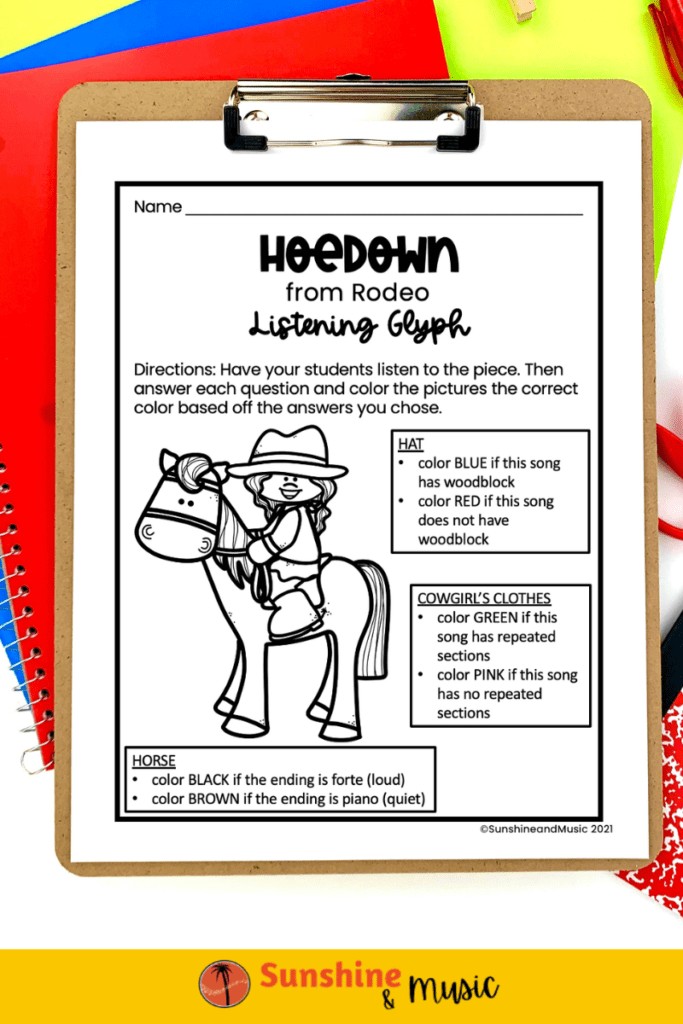
Simple Gifts from Appalachian Springs
I also have a listening glyph for Variations on Simple Gifts. But I also like to use the listening map with listening questions. Through each section, students listen and answer questions about the song. This song plays the same theme but using a huge variety of timbre and styles.
And another great way to show variation is through movement. I made a creative movement activity where students split into groups. Each group is in charge of creating a movement for a different variation from the song. Once each group has created their movements, we play the piece and perform them.
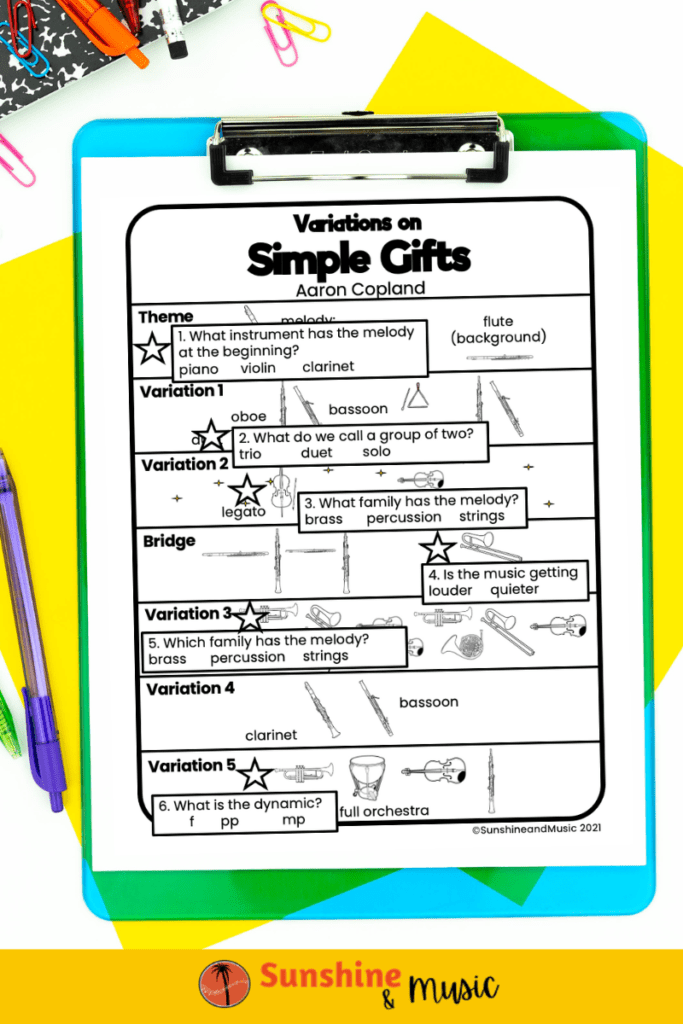
Fanfare for the Common Man
Fanfare for the Common Man is probably my personal favorite piece by Aaron Copland. It is so important that students her not just footstomping fun pieces but also slow and beautiful works like this one.
I created a scarf movement activity to go with this song. I grouped students into high and low brass, which helps to show the antifonal sound used through the piece. It can get a bit tricky at times as the antifonal parts come closer together, but it is a fun, powerful and beautiful piece to experience.

Teach The Music of Aaron Copland
Are you interested in learning more? The Music of Aaron copland Bundle has all these activities prepped and ready to go, along with biographical worksheets and activities about Aaron Copland and some suggestions for lesson plan sequence.

This bundle will give you weeks of material to use with your students as yout explore the music of Aaron Copland.
Related Blog Posts
Want more units on composers? Try this unit on the music of Camille Saint-Saens.
Try something fun and new with a unit on The Planets by Holst.

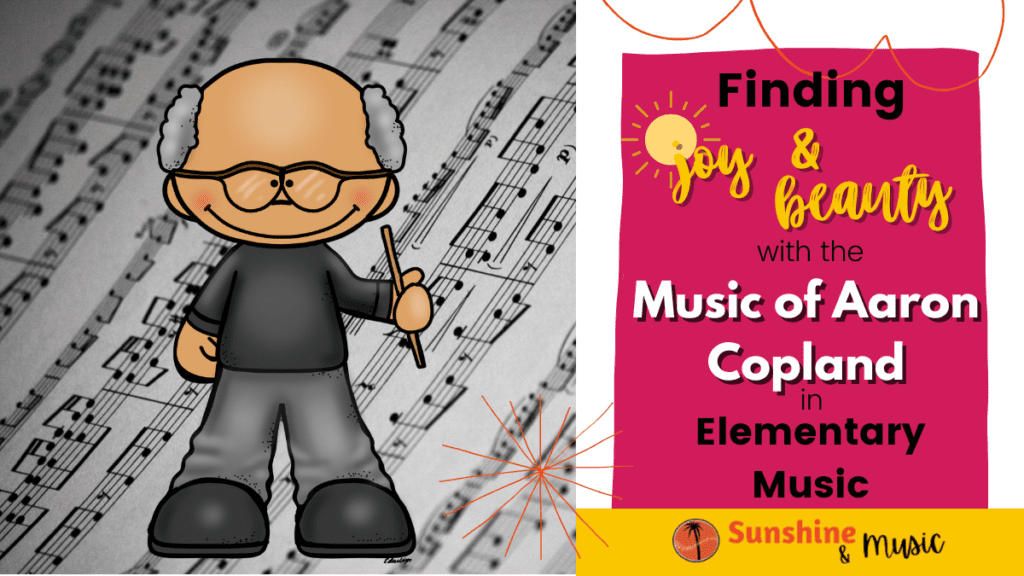

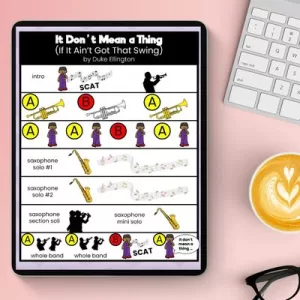


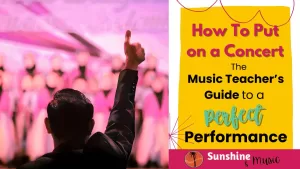

3 Responses